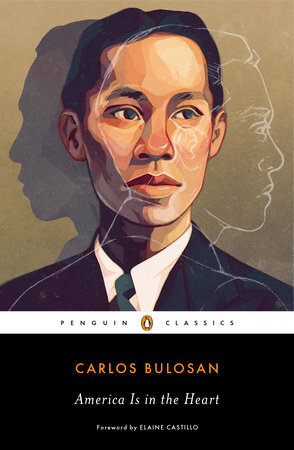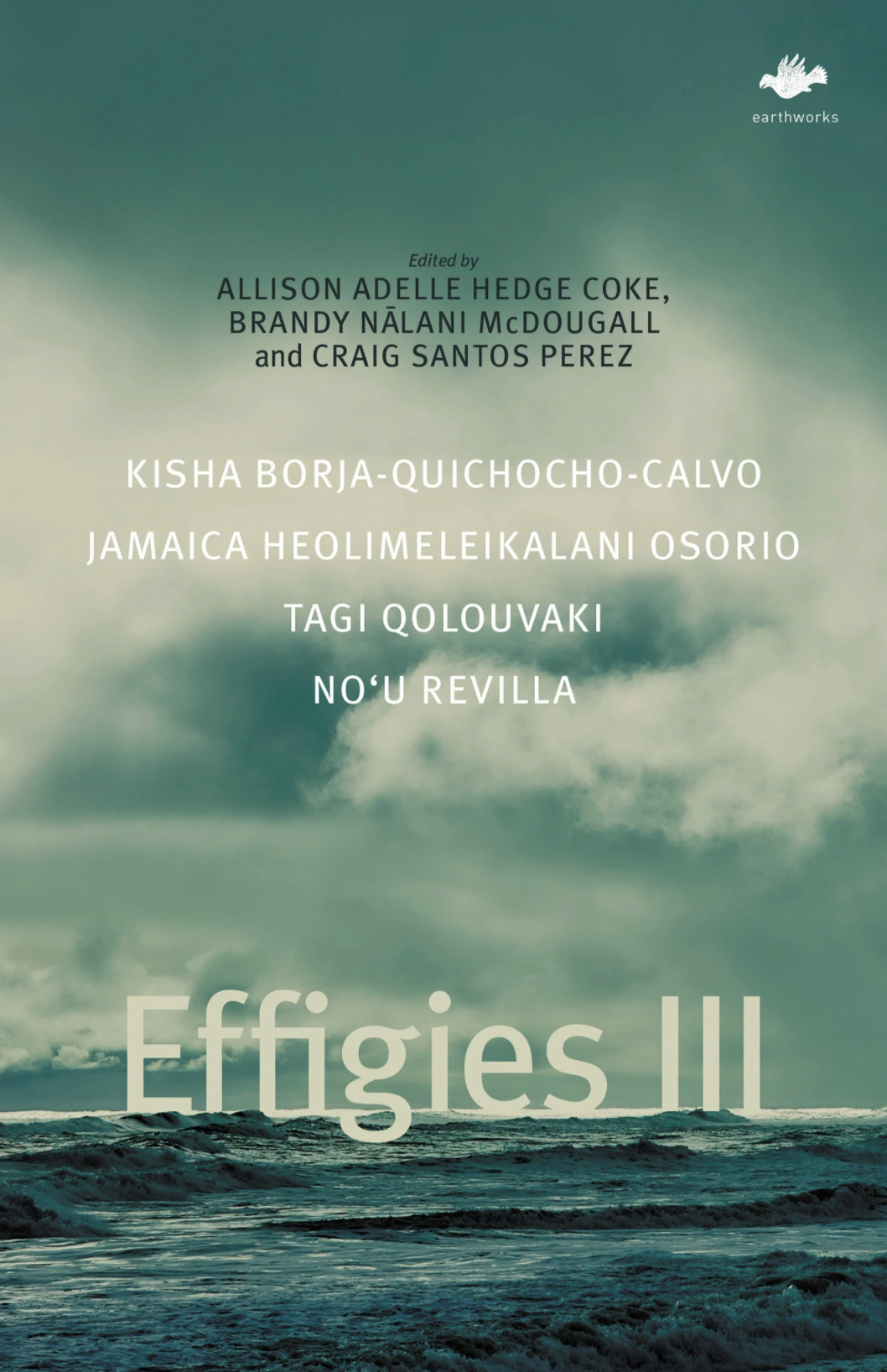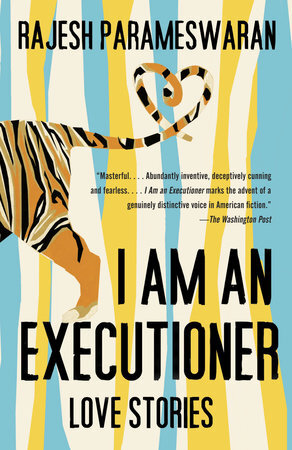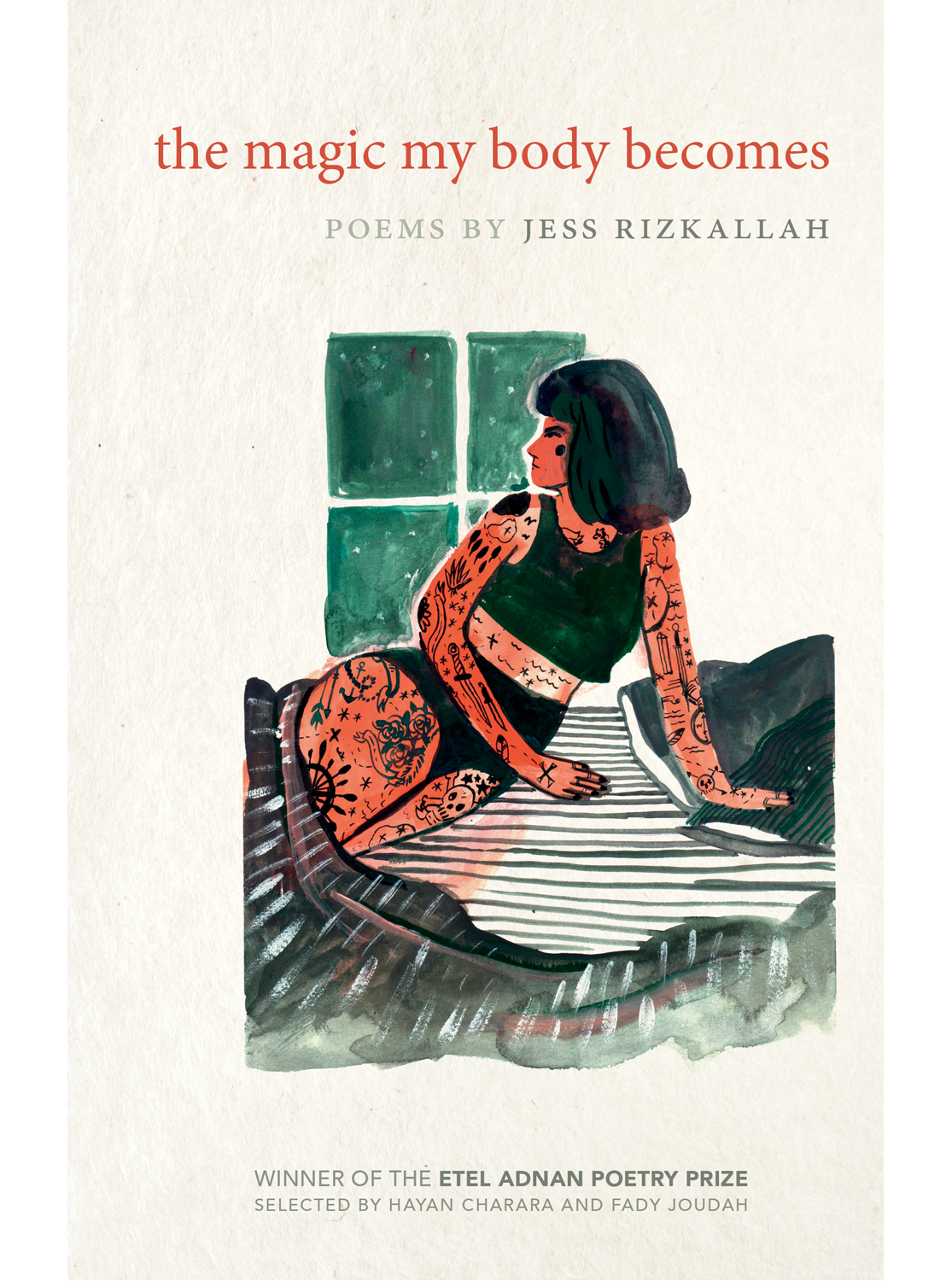25 Books to Read For Asian Pacific American Heritage Month
This Asian Pacific American Heritage Month, look for these books by AAPI writers, both classic and contemporary. Their works, spanning fiction, poetry, and nonfiction while often blurring the lines between genres, have so much to offer readers and writers of Asian American literature. From the class satire of H.T. Tsiang’s The Hanging on Union Square and the activist poetics of Kathy Jetnil-Kijiner's Iep Jāltok: Poems from a Marshallese Daughter, to the magical realist mold-breaking of Sanjena Sathian’s Gold Diggers and the spirit-conjuring verse of Jess Rizkallah's the magic my body becomes, let’s fight to uplift and amplify Asian American voices all year long.
This list was curated by Steven Duong in collaboration with Penguin Classics. You can also access the titles here at Bookshop.org.
The Country Without a Post Office by Agha Shahid Ali
Exile, longing, and a global perspective inform much of Ali's poetry, and the poet's sense of both loss and belonging is abundantly evident in his collection The Country Without a Post Office , which portrays the conflict between Muslim Indian militants and the Indian government over control of Kashmir. The title poem from the collection "The Country Without a Post Office," layers history and apocalyptic imagery to depict a nightmarishly beautiful landscape.
One day, the celebrated poet and essayist Kazim Ali finds himself thinking of the boreal forests and lush waterways of Jenpeg, a community thrown up around the building of a hydroelectric dam on the Nelson River, where he once lived for several years as a child. Does the town still exist, he wonders? Is the dam still operational? Over the course of a week, he participates in community life, speaks with Elders and community members, and learns about the politics of the dam from Pimicikamak Chief Cathy Merrick. In building relationships with his former neighbors, Ali explores questions of land and power―and in remembering a lost connection to this place, finally finds a home he might belong to.
The Revolution According to Raymundo Mata by Gina Apostol
Gina Apostol’s riotous second novel takes the form of a memoir by one Raymundo Mata, a half-blind bookworm and revolutionary, tracing his childhood, his education in Manila, his love affairs, and his discovery of writer and fellow revolutionary, Jose Rizal. Mata’s 19th-century story is complicated by present-day foreword(s), afterword(s), and footnotes from three fiercely quarrelsome and comic voices: a nationalist editor, a neo-Freudian psychoanalyst critic, and a translator, Mimi C. Magsalin. The Revolution According to Raymundo Mata offers an intoxicating blend of fact and fiction, uncovering lost histories while building dazzling, anarchic modes of narrative.
“At a time when we are moving so fast we forget to breathe, Last Days asks us to stop, to think, to see. These poems examine the joy of struggle and the interconnectedness of all things, dissolving the borders between nature and humanity and past and present. To those who have been in the fight a long time, who are tired, who want to rest, and who want to win, these are vital, nourishing, life-giving words.”
–Ai-jen Poo, Executive Director of the National Domestic Workers Alliance and Director of Caring Across Generations
America Is in the Heart by Carlos Bulosan
Bulosan's semi-autobiographical novel America is in the Heart begins with the narrator's rural childhood in the Philippines and the struggles of land-poor peasant families affected by US imperialism after the Spanish American War of the late 1890s. Carlos's experiences with other Filipino migrant laborers, who endured intense racial abuse in the fields, orchards, towns, cities and canneries of California and the Pacific Northwest in the 1930s, reexamine the ideals of the American dream. Bulosan was one of the most important 20th century social critics with his deeply moving account of what it was like to be criminalized in the U.S. as a Filipino migrant drawn to the ideals of what America symbolized and committed to social justice for all marginalized groups.
One evening, Mother tells Daughter a story about a tiger spirit who lived in a woman’s body. She was called Hu Gu Po, and she hungered to eat children, especially their toes. Soon afterward, Daughter awakes with a tiger tail. All the while, Daughter is falling for Ben, a neighborhood girl with strange powers of her own. As the two young lovers translate the grandmother’s letters, Daughter begins to understand that each woman in her family embodies a myth—and that she will have to bring her family’s secrets to light in order to change their destiny. With a poetic voice of crackling electricity, K-Ming Chang is an explosive young writer who combines the wit and fabulism of Helen Oyeyemi with the subversive storytelling of Maxine Hong Kingston. Tracing one family’s history from Taiwan to America, from Arkansas to California, Bestiary is a novel of migration, queer lineages, and girlhood.
Iep Jāltok: Poems from a Marshallese Daughter by Kathy Jetnil-Kijiner
Marshallese poet and activist Kathy Jetnil-Kijiner’s writing highlights the traumas of colonialism, racism, forced migration, the legacy of American nuclear testing, and the impending threats of climate change on the Marshall Islands and beyond. Bearing witness at the front lines of various activist movements inspires her work and has propelled her poetry onto international stages, where she has performed in front of audiences ranging from elementary school students to more than a hundred world leaders at the United Nations Climate Summit. Iep Jāltok is the first published book of poetry written by a Marshallese author, and it ushers in an important new voice for justice.
East Goes West by Younghill Kang
Having fled Japanese-occupied Korea for the gleaming promise of the United States with nothing but four dollars and a suitcase full of Shakespeare to his name, the young, idealistic Chungpa Han arrives in a New York teeming with expatriates, businessmen, students, scholars, and indigents. Struggling to support his studies, he travels throughout the United States and Canada, becoming by turns a traveling salesman, a domestic worker, and a farmer, and observing along the way the idealism, greed, and shifting values of the industrializing twentieth century. Part picaresque adventure, part shrewd social commentary, East Goes West casts a sharply satirical eye on the demands and perils of assimilation.
World of Wonders by Aimee Nezhukumatathil
From beloved, award-winning poet Aimee Nezhukumatathil comes a debut work of nonfiction—a collection of essays about the natural world, and the way its inhabitants can teach, support, and inspire us. Even in the strange and the unlovely, Nezhukumatathil finds beauty and kinship. For it is this way with wonder: it requires that we are curious enough to look past the distractions in order to fully appreciate the world’s gifts. Warm, lyrical, and gorgeously illustrated by Fumi Nakamura, World of Wonders is a book of sustenance and joy.
In her debut collection, Tiana Nobile grapples with the history of transnational adoption, both her own from South Korea and the broader, collective experience. In conversation with psychologist Harry Harlow’s monkey experiments and utilizing fragments of a highly personal cache of documents from her own adoption, these poems explore dislocation, familial relationships, and the science of love and attachment. A Rona Jaffe Foundation award winner, Nobile is a glimmering new talent. Cleave attempts to unknot the complexities of adoptee childhood, revealing a nature of opposites—”the child cleaved to her mother / the child cleaved from her mother”—while reckoning with the histories that make us.
Long Live the Tribe of Fatherless Girls by T Kira Madden
Acclaimed literary essayist T Kira Madden's raw and redemptive debut memoir is about coming of age and reckoning with desire as a queer, biracial teenager amidst the fierce contradictions of Boca Raton, Florida, a place where she found cult-like privilege, shocking racial disparities, rampant white-collar crime, and powerfully destructive standards of beauty hiding in plain sight. With unflinching honesty and lyrical prose, spanning from 1960s Hawai'i to the present-day struggle of a young woman mourning the loss of a father while unearthing truths that reframe her reality, Long Live the Tribe of Fatherless Girls is equal parts eulogy and love letter. It’s a story about trauma and forgiveness, about families of blood and affinity, both lost and found, unmade and rebuilt, crooked and beautiful.
In this debut novel, Jivan is a Muslim girl from the slums, determined to move up in life, who is accused of executing a terrorist attack on a train because of a careless comment on Facebook. PT Sir is an opportunistic gym teacher who hitches his aspirations to a right-wing political party, and finds that his own ascent becomes linked to Jivan's fall. Lovely—an irresistible outcast whose exuberant voice and dreams of glory fill the novel with warmth and hope and humor—has the alibi that can set Jivan free, but it will cost her everything she holds dear. Majumdar writes with dazzling assurance at a breakneck pace on complex themes that read here as the components of a thriller: class, fate, corruption, justice, and what it feels like to face profound obstacles and yet nurture big dreams in a country spinning toward extremism.
Shrapnel Maps by Philip Metres
Writing into the wounds and reverberations of the Israel/Palestine conflict, Philip Metres’ fourth book of poems is at once elegiac and activist, an exploratory surgery to extract the slivers of cartography through palimpsest and erasure. Shrapnel Maps traces the hurt and tender places, where political noise turns into the voices of Palestinians and Israelis. Working with documentary flyers, vintage postcards, travelogues, cartographic language, and first person testimonies, Shrapnel Maps ranges from monologue sonnets to prose vignettes, polyphonics to blackouts, indices to simultaneities, as Palestinians and Israelis long for justice and peace, for understanding and survival.
Growing up a Guyanese Indian immigrant in Central Florida, Rajiv Mohabir is fascinated by his family’s abandoned Hindu history and the legacy of his ancestors, who were indentured laborers on British sugarcane plantations. In Toronto he sits at the feet of Aji, his grandmother, listening to her stories and songs in her Caribbean Bhojpuri. By now Aji’s eleven children have immigrated to North America and busied themselves with ascension, Christianity, and the erasure of their heritage and Caribbean accents. But Rajiv wants to know more: where did he come from, and why does he feel so out of place? Rapturous, inventive, and devastating in its critique of our own failures of inclusion, Antiman is a hybrid memoir that helps us see ourselves and relationships anew, and announces an exciting new talent in Rajiv Mohabir.
Despite the distant origins of the writers in this anthology, they all explore culture, history, politics, genealogy, feminism, and the environment. Overall, they represent the next resurgent wave of empowered and decolonial Pacific writers. No‘u Revilla (Kanaka ‘Ōiwi), Jamaica Heolimeleikalani Osorio (Kanaka ‘Ōiwi), Kisha Borja-Quichocho-Calvo (Chamoru), and Tagi Quolouvaki (Fijian, Tongan) take readers into the vast Pacific ocean to swim beyond the reef in high tide, out to where the water meets the sky, only to circle back to the islands to taste the tears and sweat in coconut and guava, the smell of frangipani on the wind. Amidst such beauty, these poets also carry us into darkness with tremendous power and vulnerability, laying bare the ravages of colonialism—the brutal occupation of country, the violence waged against Native women and girls, the erosion of language and ancestral memory, and the forced disconnections from land, ocean, and other healing lifeways.
I Am an Executioner: Love Stories by Rajesh Parameswaran
The heroes—and anti-heroes—of I Am an Executioner include a misunderstood tiger whose affection for his keeper goes horribly awry, a woman trying to celebrate Thanksgiving with her husband’s corpse sprawled on their living-room floor, and an ex-CompUSA employee setting up a medical practice armed only library books and fake business cards. Rajesh Parameswaran has a riotous, singular imagination that promises to dazzle the universe of American fiction.
the magic my body becomes by Jess Rizkallah
In exploring family history, civil war, trauma, and Lebanon itself, Rizkallah draws from the spirits of canonical Arab and Middle Eastern poets. As a result of her conjuring, the reader feels these spirits begin to exorcise the grief of those who are still alive. Throughout, there is the body, a reclamation and pushback against cultures that simultaneously sexualize and shame women. And there is a softness as inherent as rage, a resisting of stereotypes that too often speak louder than the complexities of a resilient cultural identity. the magic my body becomes is an exciting new book from an exciting young poet, a love letter to a people as well as a fist in the air.
Craft in the Real World by Matthew Salesses
Drawing from examples including One Thousand and One Nights, Curious George, Ursula K. Le Guin’s A Wizard of Earthsea, and the Asian American classic No-No Boy, Salesses asks us to reimagine craft and the workshop. In the pages of exercises included here, teachers will find suggestions for building syllabi, grading, and introducing new methods to the classroom; students will find revision and editing guidance, as well as a new lens for reading their work. Salesses shows that we need to interrogate the lack of diversity at the core of published fiction: how we teach and write it. After all, as he reminds us, “When we write fiction, we write the world.”
Gold Diggers by Sanjena Sathian
A magical realist coming-of-age story, Gold Diggers skewers the model minority myth to tell a hilarious and moving story about immigrant identity, community, and the underside of ambition. A floundering second-generation teenager growing up in the Bush-era Atlanta suburbs, Neil Narayan is funny and smart but struggles to bear the weight of expectations of his family and their Asian American enclave. When he discovers that his neighbor Anita Dayal is the beneficiary of an ancient, alchemical potion made from stolen gold—a “lemonade” that harnesses the ambition of the gold’s original owner—Neil sees his chance to get ahead. But events spiral into a tragedy that rips their community apart. Years later in the Bay Area, Neil still bristles against his community’s expectations—and finds he might need one more hit of that lemonade, no matter the cost. Sathian’s astonishing debut offers a fine-grained, profoundly intelligent, and bitingly funny investigation into what’s required to make it in America.
That Was Now, This Is Then by Vijay Seshadri
No one blends ironic intelligence, emotional frankness, radical self-awareness, and complex humor the way Vijay Seshadri does. In this, his fourth collection, he affirms his place as one of America’s greatest living poets. That Was Now, This Is Then takes on the planar paradoxes of time and space, destabilizing highly tuned lyrics and elegies with dizzying turns in poems of unrequitable longing, of longing for longing, of longing to be found, of grief. In these poems, Seshadri’s speaker becomes the subject, the reader becomes the writer, and the multiplying refracted narratives yield an “anguish so pure it almost / feels like joy.”
A House is a Body by Shruti Swamy
Dreams collide with reality, modernity with antiquity, and myth with identity in the twelve arresting stories of A House Is a Body. Immersive and assured, provocative and probing, these are stories written with the edge and precision of a knife blade. Set in the United States and India, they reveal small but intense moments of beauty, pain, and power that contain the world. A House Is a Body introduces a bold and original voice in fiction, from a writer at the start of a stellar career.
The Hanging on Union Square by H.T. Tsiang
Absurdist, inventive, and suffused with revolutionary fervor, and culminating in a dramatic face-off against capitalist power in the figure of the greedy businessman Mr. System, The Hanging on Union Square is a work of blazing wit and originality. More than eighty years after it was self-published, having been rejected by dozens of baffled publishers, it has become a classic of Asian American literature—a satirical send-up of class politics and capitalism and a shout of populist rage that still resonates today.
Doveglion: Collected Poems by José García Villa
Known as the “Pope of Greenwich Village,” José Garcia Villa had a special status as the only Asian poet among a group of modern literary giants in 1940s New York that included W. H. Auden, Tennessee Williams, and a young Gore Vidal. But beyond his ethnicity, Villa was a global poet who was admired for “the reverence, the raptness, the depth of concentration in [his] bravely deep poems” (Marianne Moore). Doveglion (Villa’s pen name for dove, eagle, and lion) contains Villa’s collected poetry, including rare and previously unpublished material.
In the eyes of mid-twentieth-century white America, “Aiiieeeee!” was the one-dimensional cry from Asian Americans, their singular expression of all emotions—it signified and perpetuated the idea of Asian Americans as inscrutable, foreign, self-hating, undesirable, and obedient. In this anthology first published in 1974, Frank Chin, Jeffery Chan, Lawson Inada, and Shawn Wong reclaimed that shout, outlining the history of Asian American literature and boldly drawing the boundaries for what was truly Asian American and what was white puppetry. Showcasing fourteen uncompromising works from authors such as Carlos Bulosan and John Okada, the editors introduced readers to a variety of daring voices. Now back in print with a new foreword by literary scholar Tara Fickle, this third edition reminds us how Asian Americans fought for—and seized—their place in the American literary canon.
If God is A Virus by Seema Yasmin
Based on original reporting from West Africa and the United States, and the poet’s experiences as a doctor and journalist, If God Is A Virus charts the course of the largest and deadliest Ebola epidemic in history, telling the stories of Ebola survivors, outbreak responders, journalists and the virus itself. Documentary poems explore which human lives are valued, how editorial decisions are weighed, what role the aid industrial complex plays in crises, and how medical myths and rumor can travel faster than microbes. These poems also give voice to the virus. Eight percent of the human genome is inherited from viruses and the human placenta would not exist without a gene descended from a virus. If God Is A Virus reimagines viruses as givers of life and even authors of a viral-human self-help book.


























